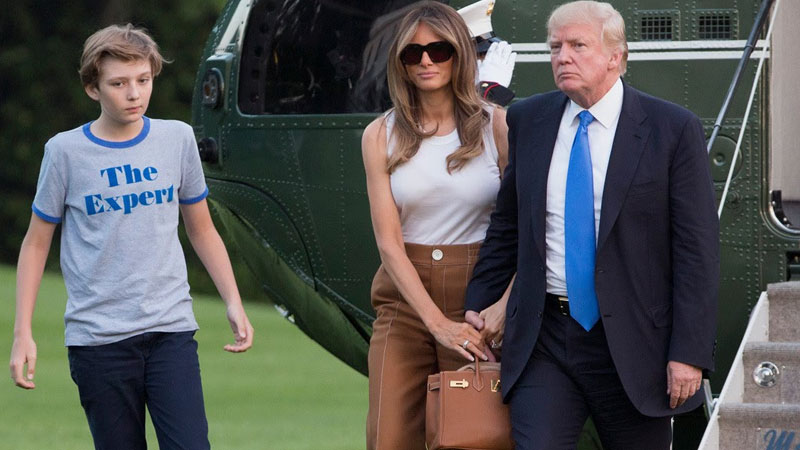“I didn’t say anything at all” Stormy Daniels Testifies in Trump Trial Amid Political Controversy

(Sue Ogrocki/The Associated Press)
On Tuesday, adult film star and director Stormy Daniels took the witness stand in former President Donald Trump’s ongoing criminal trial in Manhattan. Her testimony provided a glimpse into the “bizarre” state of American politics, according to one columnist.
Despite Judge Juan Merchan’s efforts to keep Daniels from disclosing the more salacious details of her encounter with Trump, the proceedings occasionally veered into risqué territory. Daniels recounted how Trump wore silk pajamas, asked her to spank him with a magazine, and did not use a condom during their 2006 rendezvous. She described the encounter as consensual but unpleasant and recalled Trump telling her that sleeping with him was “the only way you’re getting out of the trailer park.”
“I was trying to think about anything other than what was happening there,” Daniels said of their encounter at a Lake Tahoe casino hotel. “I didn’t say anything at all.”
In his latest column, MSNBC producer Steve Benen wrote that Daniels’ nearly four-hour testimony marked a low point in American politics. He referred to a New York Times report highlighting how young voters who will be casting their first ballots in 2024 can’t remember politics without Trump, as an 18-year-old today would have been nine years old when Trump first announced his presidential campaign in 2015. Benen lamented that “folly has become normal.”
To emphasize his point, Benen contrasted the current airing of Trump’s dirty laundry with the comparatively mild controversies of previous presidents. He cited former President Bill Clinton’s extramarital affairs and former President Ronald Reagan sparking controversy as the first divorced president. He noted that those scandals seemed “quaint” compared to Judge Merchan’s request for witnesses and prosecutors not to discuss Trump’s genitalia during the trial.
“It’s worth pausing from time to time to realize not only that American politics hasn’t always been like this, but also that it doesn’t have to remain this way,” Benen wrote. “Breaking free of a bizarre timeline is a matter of will. It can start with realizing that the broader context surrounding Trump’s trial reflects political madness.”
The encounter between Trump and Daniels is central to the trial, in which Trump is accused of covering up hush money payments to alleged mistresses to prevent voters from learning about them before the 2016 election. David Pecker, an executive at American Media Inc., testified earlier in the trial about how his publication, the National Enquirer, engaged in a “catch-and-kill” scheme to purchase exclusive rights to Daniels’ story to prevent it from being published.
Pecker testified that he believed Trump wanted to bury the story not to protect his wife and family but to aid his campaign. The 34-count indictment filed by Manhattan District Attorney Alvin Bragg alleges that Trump’s cover-up of the hush money payments for political reasons made them illegal campaign contributions.
Daniels’ encounter with Trump took place at Lake Tahoe in early 2006, not long after Trump’s wife, Melania, gave birth to their son, Barron. Daniels said that Trump had dangled the offer of an appearance on his NBC show, The Apprentice, in exchange for her sleeping with him, but she was never cast.
The trial has underscored the divisiveness and extraordinary nature of Trump’s presidency and the subsequent political climate. Benen argued that the surreal aspects of the trial reflect a broader political reality that is troubling and unprecedented. As Trump’s legal woes continue to unfold, the public remains divided, with some seeing the trial as a necessary pursuit of justice and others as a politically motivated witch hunt.
Regardless of one’s political stance, Daniels’ testimony has added another layer of complexity to the trial, providing insight into the intersection of politics, media, and the judiciary in a highly polarized America. The trial remains a focal point in the ongoing debate over the integrity of the nation’s political processes and the accountability of its leaders.


